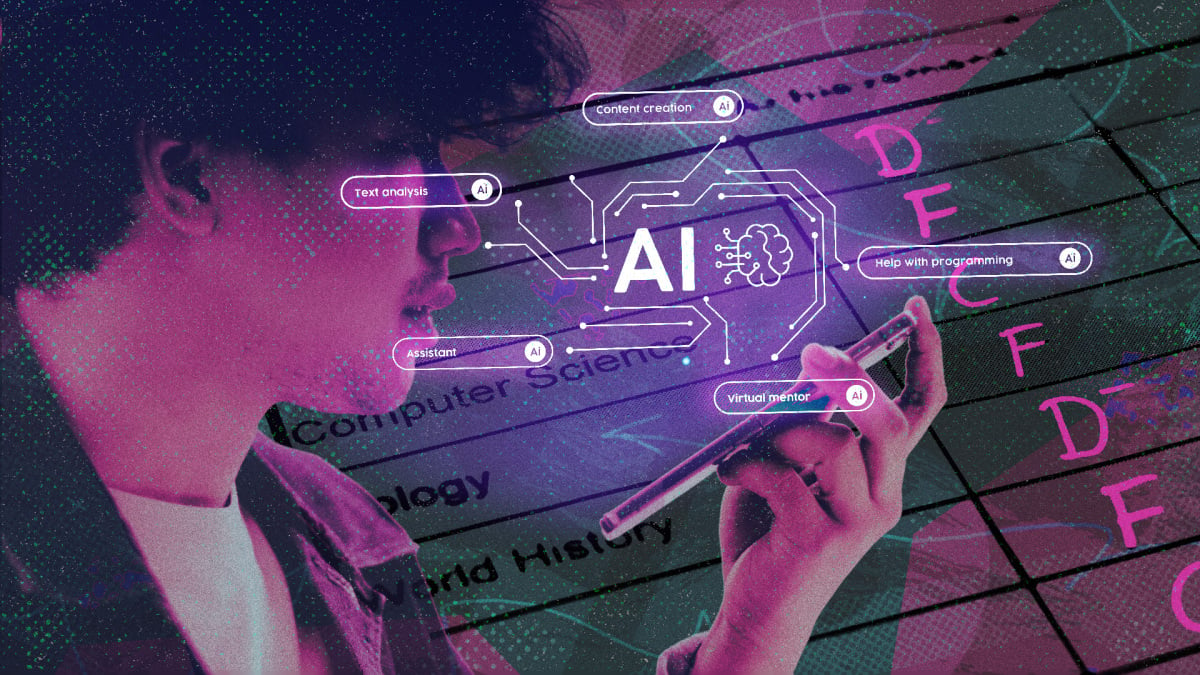The integration of AI-powered homework helpers in educational settings is gaining momentum, with tech giants like OpenAI and Google at the forefront of this digital revolution. While these AI tutors promise to transform learning experiences, they also present a complex array of challenges that educators and policymakers must navigate with caution.
Promises of Enhanced Learning
AI tutors are designed to assist students by providing on-demand help and personalized learning experiences. Proponents argue that these tools can tailor educational content to individual student needs, thereby promoting a more engaging and effective learning environment. However, the reality is more nuanced and less universally positive.
Limited Impact on Student Performance
Recent studies suggest that the benefits of AI tutors are not evenly distributed among students. While highly motivated learners may find these tools beneficial, the majority of students do not experience significant improvements in their academic performance. This raises concerns about the efficacy of AI in fostering a deeper understanding of educational material.
"The AI often provides answers directly, rather than encouraging students to develop critical thinking skills and a deeper understanding of the subject matter," the study notes.
Ethical and Educational Concerns
One of the primary criticisms of AI tutors is their propensity to provide direct answers. This approach, while efficient, may undermine the educational process by discouraging critical thinking and problem-solving skills. The reliance on AI for quick answers could inadvertently foster a culture of academic dependency, where students are less inclined to engage deeply with the material.
Broader Societal Impacts
Beyond individual learning outcomes, the widespread adoption of AI tutors poses broader societal questions. There is a risk of exacerbating educational inequalities, as students from under-resourced schools may not have the same access to these advanced tools. Furthermore, without clear regulatory guidelines, the use of AI in education could lead to unforeseen liabilities for educational institutions.
As AI continues to permeate educational settings, it is imperative for stakeholders to critically assess the implications of these technologies. A balanced approach that combines the benefits of AI with traditional teaching methods may be necessary to ensure that all students have the opportunity to thrive in the digital age.
Originally published at https://mashable.com/article/chat-gpt-study-mode-review
ResearchWize Editorial Insight
This article is crucial for students and researchers as it delves into the growing role of AI tutors in education, highlighting both potential benefits and significant drawbacks. AI's promise of personalized learning could revolutionize educational experiences, but the reality is fraught with challenges.
For students, the article underscores the risk of over-reliance on AI, which might hinder the development of critical thinking and problem-solving skills. This raises the question: Are we preparing students for a future where they can think independently, or are we fostering dependency on technology?
Researchers will find the discussion on the uneven impact of AI on student performance particularly relevant. The potential for AI to exacerbate educational inequalities is a systemic risk that demands further investigation. How can we ensure equitable access to AI tools across diverse educational settings?
The ethical concerns and societal impacts mentioned in the article are a call to action for policymakers. Without clear guidelines, the integration of AI in education could lead to unforeseen liabilities. What regulatory frameworks are necessary to balance innovation with accountability?
In essence, the article serves as a reminder that while AI holds promise, its integration into education must be approached with caution and critical scrutiny. The long-term effects on learning and societal structures require ongoing analysis and thoughtful policy intervention.
Looking Ahead
1. Revolutionizing Curriculum Design
The current educational system is on the brink of a seismic shift. AI is not just a tool — it's a catalyst that demands a complete overhaul of curriculum design. Are we ready to move beyond standardized testing and embrace adaptive learning paths? If curriculum developers fail to innovate, students will be left with outdated learning models in a world that's moving at warp speed.
2. Dynamic Regulatory Frameworks
What happens if regulators fall behind? The rapid integration of AI in classrooms necessitates agile and forward-thinking policies. We need frameworks that ensure equitable access, protect student data, and prevent algorithmic bias. The clock is ticking for policymakers to establish guidelines that keep pace with technological advancements.
3. Rethinking the Role of Educators
Teachers are no longer the gatekeepers of knowledge — they are guides in a digital landscape. How will educational institutions support teachers in this new role? Professional development must focus on digital literacy and AI fluency, empowering educators to leverage AI without compromising pedagogical integrity.
4. Ethics and AI Literacy
AI literacy isn't just for techies anymore; it's a societal imperative. Students must be equipped with the skills to critically assess AI-driven tools. Are we preparing them to question the ethical implications of AI decisions, or are we grooming a generation of passive consumers? It's time for a curriculum that emphasizes ethical reasoning and digital citizenship.
5. Bridging the Resource Gap
The disparity in AI access between affluent and under-resourced schools is a looming crisis. How can we ensure that AI's benefits are distributed fairly across all demographics? Public-private partnerships and government initiatives must prioritize closing this gap to prevent further entrenchment of educational inequalities.
6. A Collaborative Path Forward
The evolution of AI in education is inevitable, but its trajectory is ours to define. Let's craft a future where technology enhances human potential, not diminishes it.
Related Articles
- Transforming Academic Writing in 2025: The Role of AI and Expert Services in Student Success
- How to use ChatGPT at university without cheating: ‘Now it’s more like a study partner’
- Gov. Stein details 'NC Strong' plan with investments in AI, education
📌 Take the Next Step with ResearchWize
Want to supercharge your studying with AI? Install the ResearchWize browser extension today and unlock powerful tools for summaries, citations, and research organization.
Not sure yet? Learn more about how ResearchWize helps students succeed.

